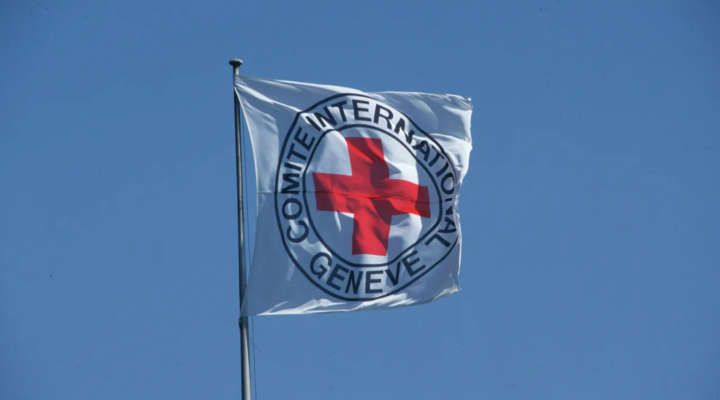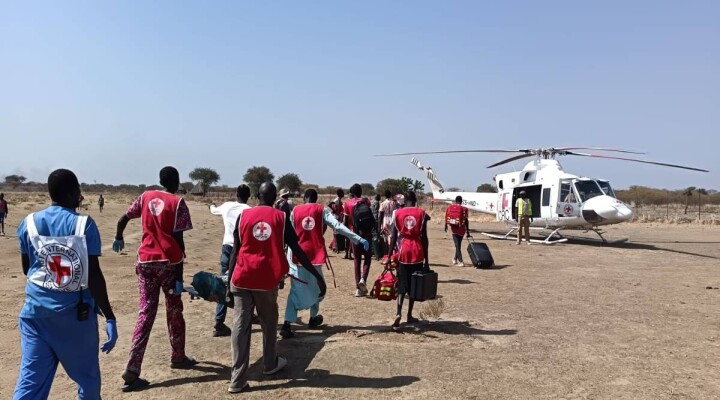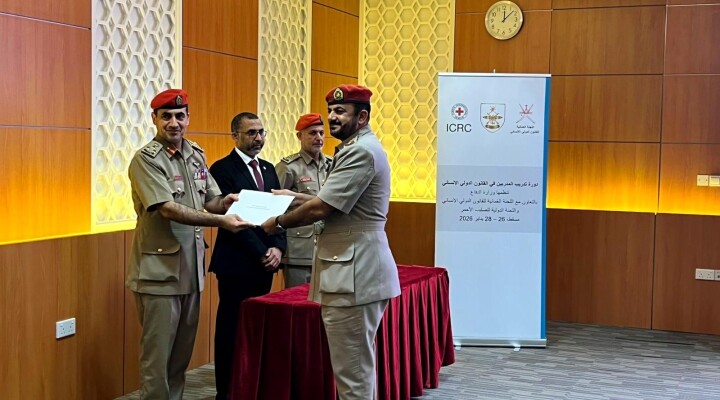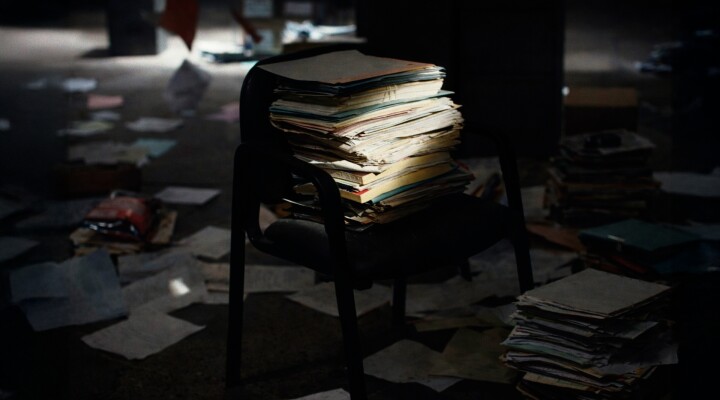Lebanon: Civilians in the South receive vital healthcare against the background of explosions
Life-saving medical supplies from the International Committee of the Red Cross (ICRC) are reaching beleaguered civilians in the Marjaayoun area of southern Lebanon, where medical needs are becoming increasingly urgent as hostilities escalate. Mobile clinics run by the Ministry of Social Affairs are using the supplies to sustain primary health services in areas hardest hit by the conflict. Many health facilities have been forced to close and movement is extremely limited.
“We have been working amidst the sounds of explosions. While the danger is always present, we are doing our best to stay safe and to protect ourselves and the people coming to us from any potential harm,” says Dr. Majd Siid, pediatrician, as a heavy blast sounds in the background. “As you can hear and see, the strikes are getting closer to us.”
Thousands of people in towns and villages affected by fighting lost access to health services after several hospitals and dozens of primary health clinics stopped functioning. The ongoing hostilities have inflicted a heavy toll on Lebanon’s healthcare system, which has also been weakened by the country’s unprecedented economic crisis. ICRC support will enable the governments’ mobile clinics to maintain consultations and provide first aid and vaccination services.
“Even when the pharmacy is open—which is rare—it often lacks essential medicines. The mobile clinic is filling this critical gap, providing much-needed support to our community,” said Nohad Rashid, a resident of Marjaayoun.
Medical workers have been constantly adapting to the rapidly evolving situation and have struggled to maintain services, sometimes at significant personal risk. Functioning hospitals in the southern cities of Tyr, Tebnine and Nabatieh face growing pressure, receiving dozens of war-wounded every week while also attempting to provide routine services to the population. Referrals and transfers of patients and evacuations of the injured and the deceased have been severely disrupted by the prevailing insecurity.
The ICRC remains committed to helping maintain access to essential healthcare in conflict-affected areas of Lebanon, providing medical supplies as well as training and financial assistance to the health authorities.
Medical facilities vehicles, and personnel must be respected and protected.
SHOTLIST
Length: 3’20’’
Location: Marjaayoun, southern Lebanon
Date of Filming: 21 November 2024
Camera: Imad Chaaban
Language: Arabic
Resolution: 4K
Copyright: ICRC access all
On Screen Credit: ICRC written or logo
|
00:00-01:04 |
Dr. Majd Siid - Pediatrician – Interview I am Dr. Majd Siid, a pediatrician. We started working with this mobile clinic almost two weeks ago. Since then, we have been assisting residents from Marjaayoun and Qlayaa, providing consultations, medications, first aid, and vaccinations. We have been working amidst the sounds of explosions and bombardments. While the danger is always present, we are doing our best to stay safe and to protect ourselves and the people coming to us from any potential harm. (Sound of an explosion in the background.) As you can hear and see, the strikes are getting closer to us. This makes it impossible for us to move around to nearby villages around Marjaayoun like Qebel, and Khiam, where the fighting is even more intense. However, for those who can make it to us here, we are doing our best to assist them and provide as much help as possible. |
|
01:05-01:58 |
Nohad Rashid - Interview “My name is Nohad Rashid, and I live in Marjaayoun with my family. A few days ago, my wife needed to see a doctor due to persistent headaches and concerns about her calcium deficiency. Normally, she would have had to travel to Hasbaya, Rashaya Al Wadi, or even as far as the Bekaa region to find a doctor. However, with the mobile clinic in our area, it made things much easier. The doctor at the clinic provided her with valuable advice on managing her pain and dealing with her condition. It really helps. I also know many people who are bringing their children to the mobile clinic for consultations and to access medications that are not available elsewhere. Even when the pharmacy is open—which is rare—it often lacks essential medicines. The mobile clinic is filling this critical gap, providing much-needed support to our community. Currently, the situation is very difficult. Movement is heavily restricted, and people only go out for essential needs. (Sound of an explosion in the background.) The situation is dire.” |
|
01:59-02:40 |
Nohad Rashid, a resident of Marjaayoun, arrives at the mobile clinic for a consultation. |
|
02:41-03:05 |
A child named Elias, accompanied by his father, arrives at the clinic for a consultation. |
|
03:06-03:20 |
B-roll footage of ICRC trucks on their way to Marjaayoun, capturing the road and surrounding scenery. |
Ends
For further information, please contact:
Alyona Synenko, Media Relations delegate, asynenko@icrc.org
Crystal Wells, ICRC Geneva, +41 79 642 80 56, cwells@icrc.org press@icrc.org
or visit our website: www.icrc.org
About the ICRC
The International Committee of the Red Cross (ICRC) is a neutral, impartial and independent organization with an exclusively humanitarian mandate that stems from the Geneva Conventions of 1949. It helps people around the world affected by armed conflict and other violence, doing everything it can to protect their lives and dignity and to relieve their suffering, often alongside its Red Cross and Red Crescent partners.



